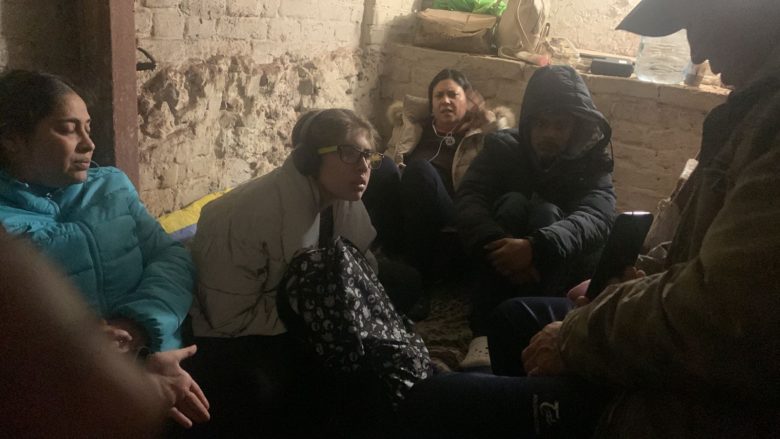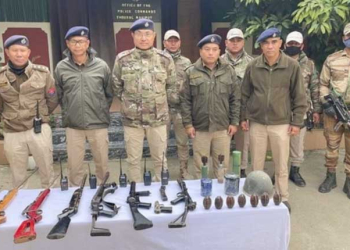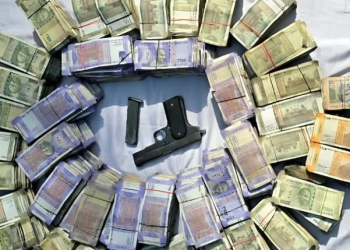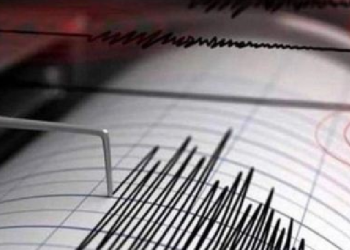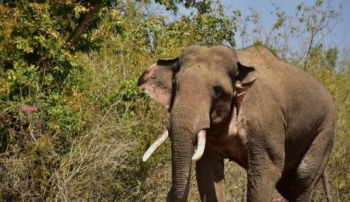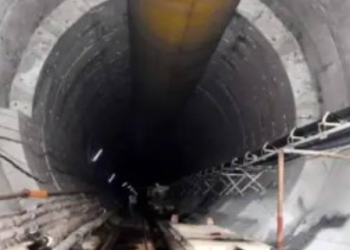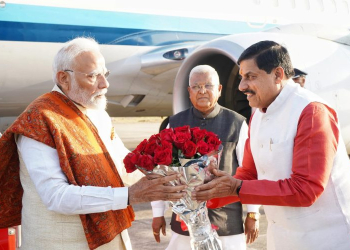New Delhi: As Russian troops continue to move deeper into the Ukrainian territory, the small Indian community threatened by the crossfire finds itself virtually pushed to the wall.
Besides other uncertainties, Indian nationals in Ukraine face scarcity of food and other issues even as bombings in cities escalate.
Kharkiv is in the northeast of Ukraine, around 500 km east from capital Kiev. Among others, it is inhabited by about 100 Indian businessmen. They have been living in the city for the past two to three decades. Most of them are engaged in trading or have big grocery shops in the embattled city.
Dinesh Singh, a native of Shikohabad in Uttar Pradesh, is one of them. He has been living in Kharkiv for the last 25 years. He along with his wife and 12-year-old son has moved into a bunker near his house. Two other Indian families have also taken shelter into the bunker like him.
Talking to IANS, Singh said, “We woke up with the sound of bombing on February 24 and were forced to take shelter in the nearby bunker. It is just 8×7 feet in size. Two other Indian families are also with us.”
He also said that bombing is continuing on the outskirts of Kharkiv since Saturday morning.
“The bunker is small for nine people and we often have to go upstairs to get a whiff of fresh air. The tiny shelter has only one bulb connection to illuminate the makeshift facility. We can’t lie on the floor, so we are taking a nap only while sitting,” he added.
Singh said that all shopping malls and grocery shops are closed now and they are left with ration that will sustain for a week or so.
“We will see what happens after a week (about ration and other essential supplies). There was a big queue at ATMs and long traffic jams on highways because many people are fleeing to the Romanian border to get refuge in the neighbouring country, as the war seems to be unrelenting,” Singh said.
A motor spare parts trader, Singh stays in Street Geroev Pratsi in Kharkiv. The small residential enclave houses around 100 homes. Their inhabitants are now forced to take shelter in safer zones and spend the nights in bunkers.
Singh’s wife Anita told IANS that the electricity supply has not been disrupted so far despite the bombings. She thinks this to be a big relief since the temperature hovers around two to three-degree Celsius in Kharkiv.
She does not seem to be scared and says that she would stay there only. Yet, she urged the Indian authorities to evacuate the stranded Indian students at earliest.
Singh further said that around five to six thousand medical students are studying in the Kharkiv National Medical College and as of now they are taking shelter in the basements of their hostels, bunkers near their private accommodations or at underground metro stations along with other Ukrainians.
According to him, about 100 Indian businessmen are living in Kharkiv who own shops in local malls, big grocery stores, pharmaceutical shops and other trading outlets.
The Indian community staying there feels that the situation will be eased by March 5 or 6 as the Ukrainian forces are still resisting amid heavy bombing by the Russian forces.
Singh and his wife, however, evaded questions about the political future that awaits Ukraine.
Sharing his experience, Singh said that at least two to four feet-long unexploded rockets can be seen stuck at little distances through the main streets of the city.
Yet, the Indian community in Ukraine seems to have adopted a wait and watch policy as its members hope that the result of this war may not affect their lives and businesses.
(IANS)



